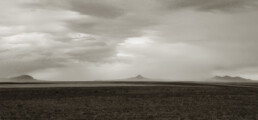
Thoughts on land acknowledgement
Less than three old men ago...
I grew up on the wide prairies of what is now called north central Montana. Montana is home to eight federally-recognized Tribal Nations of twelve different tribes: The Blackfeet, the Chippewa Cree, the Confederated Salish and Kootenai Tribes, the Crow, the Fort Belknap Tribes, the Fort Peck Tribes, the Little Shell Chippewa, and the Northern Cheyenne. The history is terrible and complex. The list of people is much longer and those names are different in the peoples’ own languages.
I visit Montana at least once a year. It fills me with a sense of home, partly because of family. Also because I feel welcomed to the land and sky of my childhood.
Reading Roxanne Dunbar-Ortiz’ An Indigenous People’s History of the United States changed how I saw and felt as I moved across that prairie. As I gazed at the Missouri breaks, lay down on the slopes of the mountains, and wiggled my toes in the creek. It was only two or three old men ago that people who looked like me destroyed whole societies who had lived there for thousands of years. I can say I feel “at home,” and I do, but also I am now keenly aware that I am an uninvited settler and the beneficiary of violence.
I’ve talked about this with my family and with my partner at Fit Associates, Hanna du Plessis. She and I live and work in Pittsburgh. Here is the settler’s acknowledgement for our Pittsburgh business.
Becoming unsettled
There’s an idea I often come back to, which I first heard in a conversation our friend Chris Corrigan. He said this…
“…You realize that you have to become unsettled. You have to unsettle yourself as a settler. In the reconciliation conversation here in Canada, white folks say things like, ‘Well, I don’t know what we should do. Do we give everything back to the natives?’ Well no, because that is just buying your comfort.
Basically the problem with the settler mindset is that you’re settled. At somebody else’s expense. And the people around whom you have settled have been made increasingly uncomfortable by your presence. They didn’t ask you to be there.
As a settler, your job is to become unsettled for the rest of your life. To be in a permanent state of unsettlement. If you do that, you can finally be in relationship with people who have been unsettled by your presence. Because now we’re both unsettled, and none of us know what to do. That is a glorious place to be.
No solutionism, no certainty. Nobody knows how to move into a post-racial world. Stop looking for a grand strategic plan, a clear answer. Just change the nature of your relationship. Become more unsettled. Listen for the stuff that’s difficult, and stay with the difficulty.
If you do even that minimal amount of emotional labor, you may have a chance at actually having a productive relationship with folks who are constantly being dragged to work by your need to be made to feel safe.”
